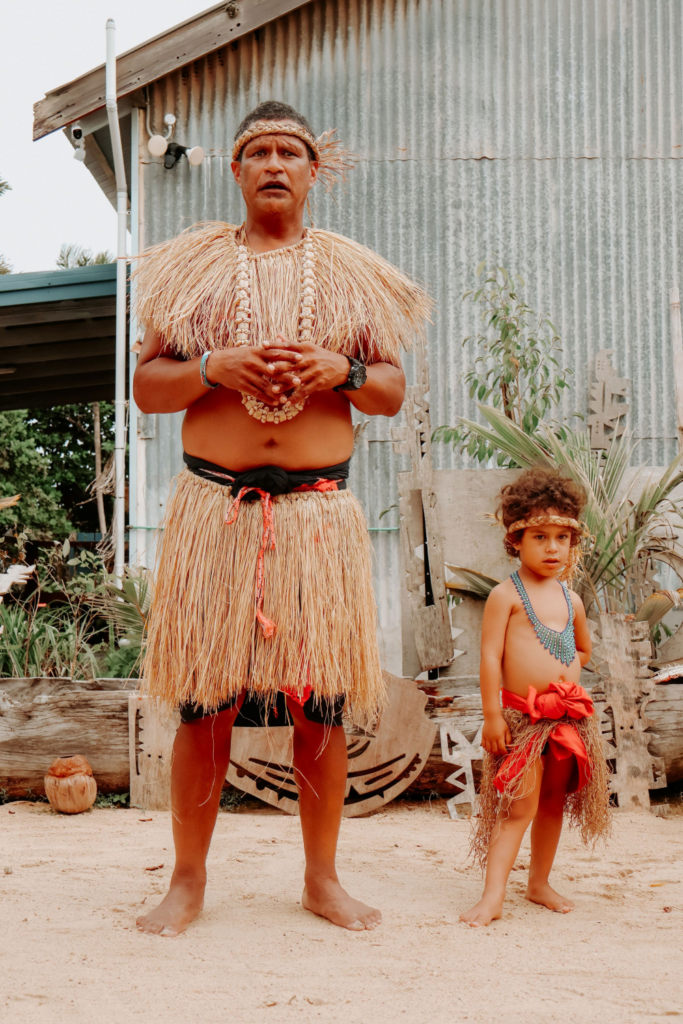Just hearing Joey Laifoo detail his Zenadth Kes (Torres Strait Islands) heritage gives a small sense of the vibrancy and culture of the region.

‘My blood line comes from Badu, Moa (Kubin), Mabuiag, and Saibai Islands. My Badu clan is Argun, totem the stingray and my Badu wind is the northwest wind. My clan Moa (Kubin), my totem is the hammerhead shark. My Mabuiag Island clan is Wagadagam, my totem is the crocodile and my wind is northwest. My Saibai Island, my totem is the snake,’ he explains.
Joey’s love of his culture and his concern about the lack of employment and training opportunities for young people living in his Zenadth Kes homeland led him to establish Island Stars.
‘Growing up, culture was everyday life for us, so that’s why we could understand it really well.’
His family always stressed the critical importance of ailan kastom (Island Custom) in maintaining healthy families and communities in Zenadth Kes.
As a dancer touring the world Joey saw culture in decline in many places.
‘We visited places where the local people have been losing their culture and when we came back to the islands, we saw the same thing here.
‘Our young ones on Waiben (Thursday Island) didn’t have the opportunity of uncles or aunties teaching them or even a place to go and practice dancing, singing, and culture,’ he told Reconciliation News.
‘There’s one cultural festival a year here and there was nothing for kids here to learn dancing and practicing their culture, but we have pubs everywhere.’
So, Joey and his partner Melissa Crump, established Island Stars to showcase ailan kastom to the growing tourist industry, while providing cultural training and employment opportunities to youth.
Today, Island Stars runs a café, an art gallery and dance studio and employs around 20 locals: 15 dancers and the remainder in the café.
Island Stars’ determination to train local people is a response to a lack of opportunities provided to young First Nations people, while non-locals are regularly flown to Zenadth Kes to undertake temporary work assignments.
‘They come up to work for a few years. Then they go back and take their skills with them.
‘We want to upskill ourselves and manage our own things. People from down south come and implement rules from outside that don’t suit here,’ he said. ‘It’s very important for our people to run things because they understand more than someone from outside.’
Joey said it was important to set up and run their own business rather than relying on governments. ‘Because we make all the decisions, we decide what we want to do, and how we run our program. Governments want us to tick boxes, and we don’t want to do that.’
He says having businesses in Torres Strait Islander hands means greater protection of cultural authenticity.
‘If we develop our own structures, I believe that we can keep that authenticity.’
In another unexpected benefit, Joey believes that Island Stars is helping tourists from across the world reconnect to their own cultures.
‘We had one young fella from Korea and when we finished dancing, he asked, “Can I share this? This is our dance for our young warriors.”
‘Then he did a dance − for a good 15 minutes − and our boys followed him around and he said, “Oh, I never felt like this before.”
‘The experience reconnected him with his culture too.’
For more information visit: islandstars.com.au
This article is from the 53rd edition of Reconciliation News. Read the rest of the issue.


